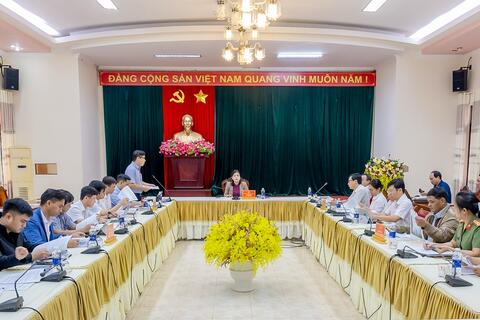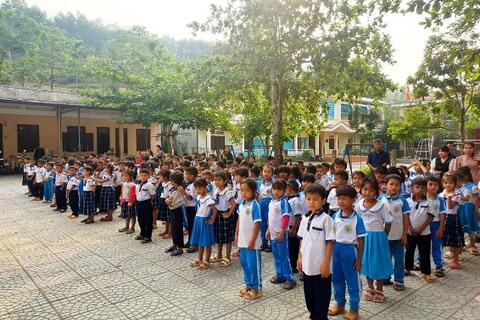Quảng Ngãi, November 19ᵗʰ — Y Ngọc, Member of the Provincial Party Standing Committee and Permanent Vice Chairwoman of the Provincial People’s Committee, on Wednesday afternoon visited Đăk Tô Ethnic Minority Boarding High School to extend congratulations on the 43ʳᵈ anniversary of Vietnamese Teachers’ Day (November 20ᵗʰ, 1982–November 20ᵗʰ, 2025).
Đăk Tô Ethnic Minority Boarding High School currently has more than 470 students, 94 per cent of whom are ethnic minority students from remote and disadvantaged areas.
In recent years, the school has maintained stable educational quality, with increases in the number of students achieving good and excellent academic performance.
Management and boarding care have been strengthened, and school facilities have seen gradual improvement.
In the 2024–2025 school year, the school was recognised by the Provincial People’s Committee as an Outstanding Collective.
Entering the 2025–2026 school year, the school has adopted the theme “Innovation, Quality Enhancement, Discipline and Solidarity”, aiming to build a safe and friendly learning environment, modernise school governance with transparency, and promote digital transformation.
The school targets a 100 per cent pass rate in both academic and behavioural assessments, maintaining a 100 per cent high school graduation rate, and strives to achieve Level-3 quality accreditation and Level-2 national standards during the 2027–2028 period.
During her visit, Vice Chairwoman Y Ngọc extended warm congratulations to the school’s administrators and teachers.
She acknowledged their efforts in renewing teaching methods, improving educational quality, and maintaining cultural, artistic and traditional vocational activities—contributing to the preservation of ethnic minority cultural identity.
Y Ngọc encouraged teachers to uphold their sense of responsibility and provide better care and support for students.
As a key institution for training ethnic minority human resources, the school was urged to continue enhancing student recruitment and training quality; strengthen career orientation and student-streaming to align learning pathways with local development needs; foster the development of gifted students; improve life-skills education for boarding students; and build a comprehensive educational environment that harmonises with local ethnic cultural values.
M.H




.png)


.jpg)


